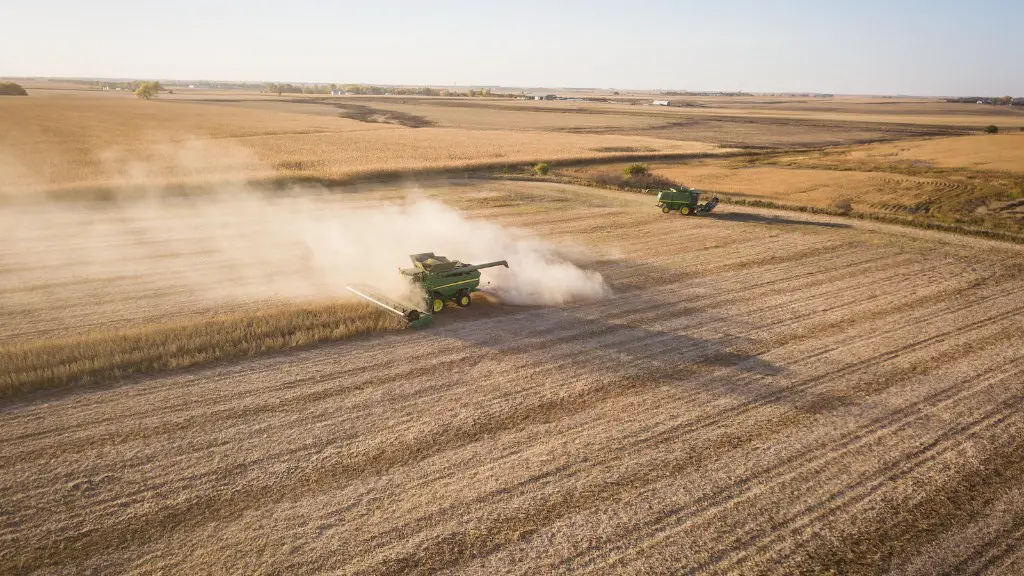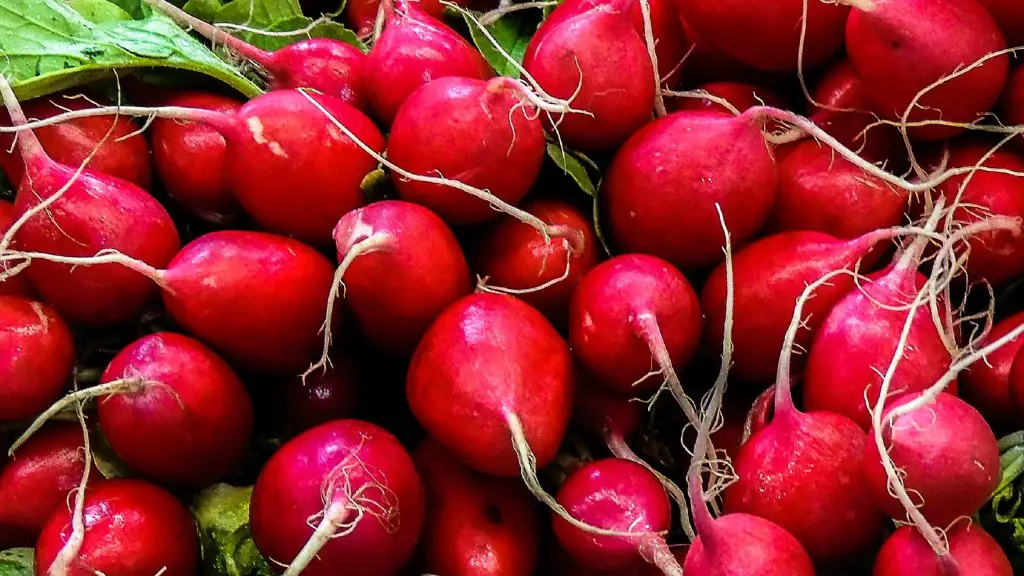Aspiring agriculturists need to understand the knowledge and skill set required to be successful. It is important to understand what courses and topics are necessary to pursue a career in agriculture. In order to succeed in the field, students should understand the fundamentals of soil science, plant pathology, plant nutrition, entomology, crop science, and economics. Additionally, students should be prepared to study genetics, statistics, and food processing.
Soil science covers the study of nutrient cycles, soil formation, and agricultural land use. This knowledge is essential for developing sustainable soil management practices and overall soil health, both of which are essential for successful crop growth. Plant pathology is the study of both beneficial and harmful interactions of plants with their environment, as well as disease prevention, diagnosis, and control. Plant nutrition requires in-depth knowledge of the role that elements and compounds play in plant growth.
Entomology is the study of insects and how they impact the environment and agricultural production. Crop Science focuses on the genetics, breeding, and ecology of cultivated plants, as well as the control of weeds and pests. Finally, economics is imperative to ensure agricultural production remains profitable. It provides an understanding of agricultural markets and the various factors that influence them.
Soil Science
Soil science covers a broad range of courses and topics, from plant nutrients and environmental pollution to soil formation, fertility, drainage, and management. All soil sciences are instrumental to successful crop production. Through a combination of outdoor field work and coursework, students learn to identify, analyze, and interpret data. They also engage in laboratory experiments and observations in order to form hypotheses and construct models for soil management.
Some of the topics covered in soil science include soil formation, water management and conservation, nutrient cycles, erosion control, and organic matter components. It also covers soil testing and the study of plant diseases in order to understand the roles they play. Furthermore, students learn how soil conservation, agrochemicals, and tillage systems affect production and the environment.
In addition to coursework, soil science students should also become familiar with specialized equipment and technology used in agricultural research. This includes remote sensing and geographic information systems that read and map soil characteristics. By understanding these systems and how they work, students can further their understanding of the soil and gain a better understanding of how to manage their soil.
Soil science teaches students how to make a sustainable impact on their environment. It provides them with the tools and knowledge to create a healthy and productive soil for farming, which is essential for successful crop production. In addition, understanding soil health helps farmers conserve water, reduce pollution, and maximize profits.
Plant Pathology
Plant pathology focuses on the study of diseases of plants and their environmental interactions. It is important for students to understand how to recognize and diagnose plant diseases, as well as their symptoms, causes, and treatments. Students also gain an understanding of the epidemiology of plant diseases, their spread and control, diseases caused by biotic and abiotic stresses, and the use of biocontrol agents to help manage them.
Through laboratory and field research, students learn to evaluate disease risks and develop management strategies. They also learn to identify, collect, and preserve plant specimens and to recognize and monitor plant diseases. Furthermore, they learn how to test and analyze soils, use genetic engineering and biotechnology, and apply standard practices for disease control.
Plant Pathology allows students to analyze and develop an in-depth understanding of plant health. They learn how to recognize, diagnose, and control various diseases that can threaten crop production. Students become familiar with the tools and techniques used for disease control and the strategies for sustainable food production. Additionally, they learn to use biotechnology and genetic engineering to develop disease-resistant plants.
In order to make a difference in the field of agriculture, students should understand the principles of plant pathology. With an understanding of plant diseases, pest management, and sustainable farming, they can contribute to healthier crops and better food production. It is important to be able to evaluate the risks associated with diseases and develop measures to protect crops.
Plant Nutrition
Plant nutrition is the study of how plants absorb and use nutrients in order to grow and produce food. It is essential for farmers to understand the role of essential nutrients in order to optimize soil fertility and increase crop productivity. Through understanding these concepts, farmers can produce healthier and more abundant crops.
The topics covered in plant nutrition include the essential elements required for healthy plants and the various types of fertilizers. Additionally, the coursework covers the physiological needs of plants, micronutrient deficiencies, and nutrient availability in soils. Plant nutrition also covers the impact of soil management practices on the availability of nutrients to plants, as well as environmental concerns, plant diseases, and insect infestation.
Plant nutrition requires that students possess a good understanding of the basics of plant biology. With a thorough understanding of various nutrients and their relationship to plant growth, students become better prepared to select the correct fertilizers for their crops and develop efficient soil management strategies for successful crop production. Furthermore, students gain an understanding of how chemicals interact with soil, plants, and other organisms in the environment.
In order to become a successful agriculturalist, students must possess a thorough understanding of plant nutrition. Proper nutrition is essential for successful crop production, and students should be able to identify the nutrients needed for healthy plants and the types of fertilizers needed to meet those needs. By understanding the role of plant physiology and environmental factors, students can make informed decisions about fertilizers and soil management strategies.
Entomology
Entomology focuses on the study of insects and their interactions with their environment. This includes insect behavior, ecology, and physiology. It also covers the study of pest management, insect control, and alternative pest management strategies. Additionally, students learn how to identify, count, and collect insects in order to understand how they are impacting agricultural production.
Students also learn how to evaluate the impacts of insects on crop production and the environment. This includes how to assess the risk of crop damage and the potential impacts of insect infestation on the ecology. Additionally, they learn how to use monitoring and trapping techniques to prevent and manage pest infestations. Students also learn about sustainable pest management, integrated pest management, and the use of biological control agents.
Entomology provides students with a comprehensive understanding of insects and their roles in agricultural systems. This knowledge helps them to recognize and diagnose insect problems in agricultural systems, as well as design strategies for controlling them. By understanding the interactions between insects and their environment, students are better prepared to use their knowledge to protect crops and enhance crop production.
Understanding Entomology is crucial for the successful management of insects and pests. It requires an in-depth understanding of insect biology, behavior, and population dynamics in order to anticipate and prevent potential problems. By learning to recognize, identify, and control pests, students gain valuable skills that are essential to sustainable agricultural production and land management.
Crop Science
Crop Science is the study of cultivated plants and the processes involved in their production. This includes crop genetics, breeding, ecology, and pest management. Students learn how to evaluate, select, and manage crops in order to maximize production yields and quality. Additionally, they study how weeds, pests, and diseases affect crop production.
The topics covered in Crop Science include plant breeding, genetics, biotechnology, and ecological principles.Students learn to apply genetic principles to select and produce new varieties of crops. Additionally, they learn about genetic engineering, biotechnology, and ethical considerations for cultured crops. In addition to the theoretical aspects, students learn to use and maintain agricultural equipment, including planting and harvesting machinery.
Crop Science provides students with a comprehensive understanding of the production and management of crops. By understanding the principles of genetics, breeding, and pest management, students can develop varieties of crops that are better adapted to their environment and more resistant to pests and diseases. Additionally, they can make more informed decisions about when and how to plant, cultivate, and harvest their crops.
In order to become a successful agriculturist, it is essential that students have a thorough understanding of Crop Science. By gaining a strong understanding of the basic principles of crop production, selection, and management, students become better prepared to produce quality, sustainable crops and increase crop yields. It is also important to have familiarity with the tools, equipment, and technology used for crop production.
Economics
Economics is essential for understanding the impact of agricultural markets on the production of crops. It provides an understanding of the various factors that influence agricultural production, such as resource management, pricing, and public policies. The topics covered in economics include microeconomics, macroeconomics, and agricultural production economics.
Microeconomics covers the principles of demand and supply, and how they affect the markets. Students learn the principles of production, cost, and management and the ways in which they are applied to agricultural markets. Additionally, students learn about pricing strategies, public policies, and strategies for managing resources.
Macroeconomics focuses on the workings of the entire economy and its various sectors. It provides an understanding of economic indicators, economic growth, and the role of government in economic development. It also covers economic fluctuations and international economic relations.
Agricultural production economics studies the economics of the agricultural sector and its various components, such as production, supply, demand, and pricing. It provides an understanding of the various government policies, subsidies, and financial instruments used to support agricultural production. Additionally, the student learns the principles of production, costing, and management, and how they can be applied to specific markets and crops.
Economics provides students with an understanding of the economic principles and policies that are essential for successful agricultural production. With an understanding of market structure, pricing mechanisms, and public policies, students can better analyze and understand the agricultural markets and their impacts. They also learn how to identify and utilize profitable opportunities in order to maximize profits.





